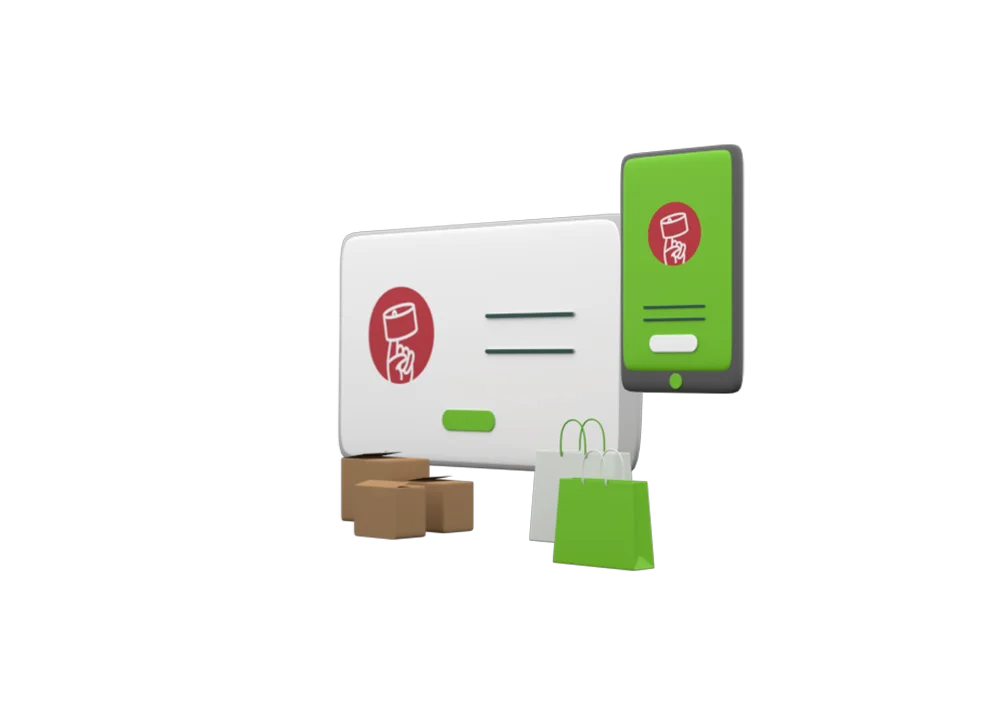The Future of Online Order Management Systems: Trends to Watch
Imagine you're a dedicated online shopper, always on the hunt for the latest deals and must-have items. You place an order for a trendy gadget that's been on your wishlist for months. The anticipation builds as you eagerly await your delivery. However, instead of the usual days-long wait, your package arrives at your doorstep within hours, and it's precisely what you expected – seamless online order management. This scenario is increasingly becoming a reality, thanks to the evolution of Online Order Management Systems (OMS).
With the e-commerce landscape today, where every minute counts, businesses are continually seeking ways to optimize their operations and enhance customer satisfaction. OMS plays a pivotal role in achieving these goals.
In this blog, we will understand the world of online order management systems, exploring their current state, the challenges faced by businesses, and most importantly, the trends that are shaping the future of OMS.
Definition of Online Order Management Systems (OMS)
Before we explore the trends, let's get a clear understanding of what Online Order Management Systems are:
“It's the technology that streamlines the entire order lifecycle, from order creation to processing, inventory management, order tracking, and even post-purchase customer support.”
At its core, OMS ensures that orders are processed efficiently, accurately, and most importantly, swiftly. The right OMS can make the difference between a satisfied, loyal customer and one who abandons their cart and never returns. This is why OMS is often called the central nervous system of any e-commerce operation.

Stay Ahead of the E-commerce Curve.
The Role of OMS in Streamlining Operations
Online Order Management software is not just about order processing; it enables businesses to:
- Enhance Customer Experiences: Customers today demand speed, accuracy, and transparency. OMS serves as a real-time online order tracking software, ensuring customers are in the loop at every stage of their order's journey. This not only instills confidence but also encourages business.
- Enable Omnichannel Retail: In an era where customers expect a seamless shopping experience across online and offline channels, OMS bridges the gap. It enables businesses to fulfill orders across multiple channels, whether they're placed online, in-store, or through other touchpoints. This flexibility is key to capturing a diverse range of customers.
Over the years there have been quite a few enhancements to Online Order Management Systems. Here are a few trends that we can explore, that are set to reshape the e-commerce landscape.
I. Current State of Online Order Management Systems
Overview of the Existing OMS Landscape
The world of OMS is vast and varied, with a multitude of solutions catering to businesses of all sizes and types. However, despite the availability of OMS software, many businesses still struggle with common challenges.
Common Challenges Faced by Businesses with Current OMS
- Order Processing Inefficiencies: Traditional OMS systems can be manual and time-consuming, leading to processing delays. This can frustrate customers who expect swift order confirmation and processing.
- Inventory Management Woes: Keeping track of real-time inventory levels is a constant battle, often resulting in overselling or stockouts. This not only affects sales but can also lead to customer dissatisfaction when products are unavailable.
- Limited Omni-channel Capabilities: Many businesses are still struggling to seamlessly integrate their online and offline sales channels. Customers today expect a consistent shopping experience whether they're in a physical store or browsing online. Failing to provide this can result in lost sales.

Optimize Your OMS Today
The Need for Innovation in OMS
Today customer expectations are higher than ever, and businesses need OMS solutions that are not just efficient but innovative. According to a report, 42% of retailers say their current OMS needs improvement. This brings us to the trends that are poised to redefine the future of OMS.
II. Trends Shaping the Future of Online Order Management Systems
 Automation and AI Integration
Automation and AI Integration
Automation and Artificial Intelligence (AI) are revolutionizing OMS by introducing:
- Faster Order Processing: AI-driven systems can automatically process orders, reducing the need for manual intervention. This not only speeds up order fulfillment but also minimizes the risk of errors, improving order accuracy.
- Enhanced Customer Insights: AI can analyze customer data to personalize shopping experiences. By understanding each customer's preferences, businesses can offer tailored product recommendations and promotions, leading to higher sales and customer satisfaction.
Real-time Inventory Management
Real-time inventory tracking has become a necessity due to:
- Consumer Demand for Accuracy: Shoppers expect to see accurate stock levels before making a purchase. Real-time inventory management ensures that customers can trust product availability information, reducing the likelihood of abandoned carts due to stockouts.
- IoT and RFID Technology: These technologies are enabling businesses to track inventory at a granular level. IoT sensors and RFID tags can provide real-time data on the location and status of products in warehouses and stores. This level of visibility allows businesses to optimize their inventory, reduce losses, and provide customers with accurate delivery estimates.
Omni-channel Order Fulfillment
The rise of omni-channel retail requires OMS to:
Seamlessly Fulfill Orders Across Channels: Ecommerce OMS is essential in ensuring that orders are efficiently processed, whether they originate online or in-store. This means that customers can choose how and where they receive their orders, whether it's through home delivery, in-store pickup, or from a third-party location. This flexibility enhances the customer experience and can drive customer loyalty.
Provide Multichannel Customer Support: Customers expect consistent support across various channels. When a customer contacts support with a question or issue, they don't want to be redirected multiple times or have to explain their situation repeatedly. OMS enables businesses to access a centralized view of each customer's interactions and orders, allowing support teams to provide timely and relevant assistance.
Importance of Customer Satisfaction
Satisfied customers are more likely to become repeat buyers. OMS contributes to customer satisfaction by:
- Ensuring Seamless Experiences: OMS helps in providing seamless, error-free order experiences. Orders are processed swiftly and accurately, and customers can track their orders in real-time. This level of transparency builds trust and keeps customers informed throughout their purchase journey.
- Collecting Real-time Data: Real-time data collection enables businesses to address customer concerns promptly. If an issue arises during order processing, businesses can identify and resolve it before it affects the customer. Moreover, by analyzing customer data, businesses can identify trends and preferences, allowing them to tailor their offerings and marketing strategies to better meet customer needs.
Integrating with New Marketplaces
 Modern OMS platforms have the flexibility to:
Modern OMS platforms have the flexibility to:
- Integrate with Various Marketplaces: This simplifies operations for businesses selling on multiple platforms. Whether a business is selling on its website, through a mobile app, on social media, or on third-party marketplaces like Amazon and eBay, OMS can centralize order processing, inventory management, and order tracking. This streamlines operations and ensures consistency in order fulfillment and customer communication.
Cloud-Based OMS
Migrating to cloud-based OMS offers:
- Scalability and Flexibility: Cloud-based systems can scale with your business's growth. This means that whether your business experiences rapid expansion or seasonal fluctuations, your OMS can adapt to meet your needs. This scalability ensures that you don't need to invest in new hardware or software every time your business grows.
- Sustainability and Green Initiatives: Cloud-based systems are often more energy-efficient, aligning with eco-conscious consumer trends. By hosting OMS in the cloud, businesses can reduce their carbon footprint. Additionally, cloud-based systems can support remote work, reducing the need for employees to commute to a physical office, further contributing to sustainability goals.
III. Ginesys Leading the Way
One of the frontrunners in the OMS space is Ginesys One. Their ecosystem helps businesses seamlessly adopt online order management software, adding value through:
The Ginesys One OMS (Browntape) is a leading player in the world of online mutlichannel order management systems. Through their Ginesys One ecosystem, they provide businesses with a comprehensive suite of tools and solutions that cover all aspects of retail operations. From manufacturing and point of sale (POS) to wholesale, Ginesys One is a unified platform that ensures seamless connectivity between various facets of a retail business.
Advantages of Integrating OMS, ERP, and POS
Ginesys recognizes that the integration of OMS with Enterprise Resource Planning (ERP) and Point of Sale (POS) systems is pivotal for achieving operational excellence. Here's how Ginesys contributes to the success of businesses:
- Inculcate Process Excellence: Ginesys Retail ERP solution aligns with a business's unique processes and requirements. This customized approach ensures that the OMS is not just a tool but a strategic asset that enhances efficiency across the organization.
- Huge Cost Savings: By successfully implementing Ginesys One, businesses can experience significant cost savings. The automations that come with Ginesys One, streamline operations, reducing labor costs and preventing errors.
- High-Quality & Cost-Effective Solution: Ginesys One offers a high-quality yet cost-effective solution that aligns with the strategic direction of d2c, offline brands and omnichannel brands. This means businesses can enjoy the benefits of cutting-edge technology without breaking the bank.
- Better Control on Sales and Stock: Ginesys' ecommerce order management system provides real-time data synchronization, giving businesses better control over their sales and stock. This real-time visibility prevents stockouts, optimizes inventory, and ensures customers receive accurate delivery estimates.
- Consolidated Branch Information: Ginesys' OMS aggregates branch information at Touchpoints (TIPs). This consolidated view of data ensures that businesses have access to crucial insights and trends that can shape their strategies and decision-making.

Discover Ginesys for Seamless OMS Solutions.
The Mufti Case Study: A Real-Life Example
To illustrate the impact of Ginesys' solutions, let's look at a real-life case study involving Mufti, a prominent player in the fashion industry.
Mufti, a brand synonymous with cutting-edge fashion in casual wear, was operating 185 outlets across the country. Before partnering with Ginesys, Mufti faced significant challenges. They were using local software that struggled with data synchronization and discrepancies. Mufti needed a solution that could harmonize their diverse businesses and processes while being cost-effective and operationally efficient.
Ginesys stepped up to the challenge. They implemented a customized Retail ERP solution, tailored to Mufti's needs. Some of the key areas addressed included mapping sales processes with correct tax parameters and enabling stock transfers to Exclusive Brand Outlets (EBOs).
The project's success wasn't without its hurdles. Ginesys' implementation team had to meticulously understand Mufti's internal processes and requirements, all while navigating a lack of skilled IT professionals within Mufti's team.
In the words of Habir Singh Sidhu, Director of Gainsay at Mufti, "It is a good Retail ERP solution because it facilitates the whole process of our business right from manufacturing to retail. They’ve really helped us solve a number of operational challenges."
Return on Investment to Mufti:
- Inculcate Process Excellence
- Huge Cost Savings by Successful Implementation of GINESYS
- Emerged as High-Quality & Cost-Effective Solution Strategic Direction to Mufti
- Better Control on Sales and Stock through Data Synchronization
- Consolidated Branch Information at TIPs
Return on Investment to Ginesys:
Through the successful implementation at Mufti, Ginesys added another feather to its cap. Mufti's journey with Ginesys is a testament to the transformative power of innovative OMS solutions in the world of e-commerce.
IV. Challenges and Considerations
As we look ahead to the future of online order management systems, it's essential to address potential hurdles.
Addressing Potential Hurdles in Adopting New OMS Trends
- Compliance and Data Security Concerns: With the increasing volume of customer data handled by OMS systems, ensuring compliance with data protection regulations and safeguarding against security threats is paramount. Businesses must invest in robust security measures and stay abreast of evolving compliance requirements.
- Training and Skill Development for OMS Staff: Implementing advanced OMS solutions often requires a shift in organizational culture and the development of new skill sets. Businesses must invest in training and skill development programs to ensure their staff can maximize the benefits of these systems.
How Ginesys Proactively Addresses These Issues
Ginesys understands that businesses face various challenges when adopting new OMS trends. Here's how Ginesys proactively addresses these concerns:
Compliance and Data Security Concerns:
Ginesys prioritizes data security and compliance within its solutions. The Ginesys ecosystem is designed with robust security features to protect sensitive customer data. This includes encryption protocols, user access controls, and regular security updates. By implementing Ginesys, businesses can have confidence in the security and compliance of their OMS.
Training and Skill Development for OMS Staff:
The transition to new OMS trends often necessitates a learning curve for employees. Ginesys acknowledges the importance of user training and offers comprehensive training programs. These programs empower staff with the knowledge and skills needed to effectively navigate and utilize Ginesys OMS solutions. Whether it's understanding the intricacies of the system or staying updated with the latest features, Ginesys ensures that staff are well-prepared.
Beyond Addressing Hurdles: Enhancing Efficiency and Agility
Ginesys goes beyond addressing challenges; it actively enhances efficiency and agility within businesses. Here's how:
E-commerce Integration:
Ginesys acknowledges that e-commerce is a powerful avenue for brand expansion. Through its One ecosystem, Ginesys offers an Order and Inventory Management System (OMS) called Browntape, which seamlessly integrates with various marketplaces and web stores. This integration allows businesses to manage inventory and orders in one centralized place, streamlining their e-commerce operations.
Managing D2C Sales:
Ginesys simplifies the management of Direct-to-Consumer (D2C) sales through web store integration with leading platforms like Shopify, WooCommerce, and Magento. While these e-commerce carts excel at creating web stores, they often fall short in managing inventory and integrating with ERP and warehouse systems. Ginesys One WMS (Browntape) bridges this gap, providing businesses with a user-friendly interface for inventory updates, pricing adjustments, order tracking, and more. Moreover, it offers seamless integrations with Ginesys ERP and other prominent ERP and WMS systems, ensuring a smooth flow of real-time information between warehouses and online stores.
Selling on Marketplaces:
For businesses looking to kickstart their online presence, marketplaces provide an excellent entry point. Ginesys supports selling on major marketplaces such as Amazon, Flipkart, Myntra, and Paytm, among others, through integrations with order management systems like Browntape. These integrations enable order-level interactions and, in some cases, invoice posting functionality, simplifying the management of marketplace operations.
Automated Omnichannel Retail:
Ginesys OMS (Browntape) introduces automation into omnichannel retail operations, taking efficiency to the next level. It offers multiple options and rules for automatically allocating orders to warehouses and shops based on stock availability. E-commerce website orders can be seamlessly split and fulfilled from various locations. The OMS also automates order reservation, enhancing inventory management. This level of automation ensures that customers receive timely and accurate order fulfillment.

Transform Your E-commerce Strategy Now
Warehouse Management and Shipping:
Ginesys OMS integrates seamlessly with warehouse management systems and shipping partners. It allows businesses to create shipping labels in marketplace-specific formats, generate manifests, and manage the AWB (Airway Bill) process efficiently. This integration streamlines the shipping and order fulfillment process, resulting in a smoother experience for both businesses and customers.
Detailed Payments and Accounting Reconciliation:
Managing payments and accounting reconciliation can be a time-consuming process in e-commerce. Browntape OMS automates the tracking of marketplace payments and various charges, providing insights into the profitability of each order and item. With Ginesys, this automation extends further, automatically recording all credits and debits for e-commerce orders within your ERP. This automation significantly reduces the effort required in the most intricate aspects of online selling.
Incorporating Ginesys into your e-commerce operations doesn't just address challenges; it propels your business toward greater efficiency, agility, and customer satisfaction. Ginesys' holistic approach to OMS, along with its commitment to security, compliance, and staff development, ensures that businesses can thrive in the ever-evolving world of online order management.
With the Ginesys OMS ecosystem, businesses can confidently navigate the complex landscape of modern e-commerce while focusing on what matters most—delivering exceptional products and experiences to their customers.
Incorporating these trends into your business strategy and adopting a forward-thinking OMS solution like Ginesys can propel your retail operations into the future. Ginesys empowers businesses to not only adapt to these trends but also thrive in the digital retail landscape.
Innovate your ecommerce order management system today with Ginesys and secure your position in the future of e-commerce.
Key Takeaways:
- OMS Essentials: OMS is crucial for efficient e-commerce operations, providing seamless order processing, enhancing customer satisfaction, and bridging online and offline retail channels.
- Common Challenges: Businesses often face issues with order processing efficiency, inventory management, and integrating multiple sales channels.
- Future Trends: Look for automation, AI integration, real-time inventory tracking, omni-channel order fulfillment, data-driven insights, and marketplace integration to shape the future of OMS.
- Ginesys Advantage: Ginesys One ecosystem offers holistic OMS solutions, integrating with ERP and POS systems, reducing costs, improving control over sales and inventory, and streamlining operations.
- Addressing Hurdles: Ginesys proactively tackles compliance, data security, and staff training challenges, ensuring a smooth transition to advanced OMS trends.
- Embrace Innovation: Incorporate these trends and Ginesys solutions to stay ahead in the ever-evolving e-commerce landscape, providing exceptional customer experiences and driving business growth.

